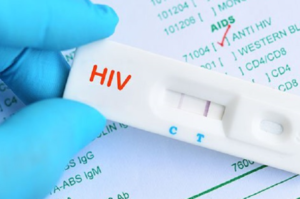See the Thousands of HIV Cases, Nigeria Recorded Weekly
See the Thousands of HIV Cases, Nigeria Recorded Weekly

Dr. Temitope Ilori, Director-General of the National Agency for the Control of AIDS (NACA), has revealed that Nigeria recorded 1,400 new HIV infections each week in 2023. Additionally, the country experienced approximately 50,000 AIDS-related deaths over the same period.
Dr. Ilori shared these figures during the general meeting and scientific conference of the Medical and Dental Consultants Association of Nigeria at the Obafemi Awolowo University Teaching Hospitals Complex (OAUTHC) in Ile-Ife, Osun State. The conference, with the theme “Current Concepts of HIV/AIDS in Nigeria: Policy and Funding,” addressed pressing issues related to the epidemic.
She noted that Nigeria is responsible for 25 percent of the global transmission of HIV from mothers to children, with 22,000 new infections reported among children aged 0 to 14 in 2023. Dr. Ilori emphasized that the epidemic remains a significant public health concern, particularly regarding pediatric HIV, with about 1,000 AIDS-related deaths occurring each week.
Dr. Ilori highlighted the importance of addressing the epidemic, stating that reducing HIV/AIDS prevalence in Nigeria could substantially impact the global burden, given the country’s large population. At the International AIDS Society conference in Munich, it was stressed that efforts to decrease HIV/AIDS rates in Nigeria could alleviate 25 percent of the global burden.
She also pointed out the cumulative effects of HIV/AIDS on Nigeria’s growth and development, affecting socio-economic conditions, cultural practices, health, and overall well-being of households and communities.
Nigeria’s national response to HIV/AIDS includes a comprehensive policy framework for prevention, treatment, care, and support services. Despite progress, including increased funding from domestic and international sources, challenges persist in achieving sustainable financing and universal access to services.
Dr. Ilori called for continued support from stakeholders to enhance HIV/AIDS policies, improve funding mechanisms, particularly from domestic sources, and effectively implement the National HIV Sustainability Plan.
In a related lecture, Professor Ebunoluwa Adejuyigbe discussed “Grantsmanship and Partnership: Framework for Development,” highlighting the need for grantsmanship skills in securing research funding. She pointed out that Africa contributes about 2 percent of global health research output while facing 25 percent of the global disease burden. Additionally, over 10 percent of sub-Saharan Africans with advanced degrees emigrate, further impacting the region’s research capacity.
TRENDING SONGS
 Shock in Anambra: Bride Disappears Moments Before Wedding
Shock in Anambra: Bride Disappears Moments Before Wedding
 Nigerian Woman Returns ₦330 Million Accidentally Credited to Her Account
Nigerian Woman Returns ₦330 Million Accidentally Credited to Her Account
 APC Don Reach Morocco?’ VeryDarkMan Reacts to Seyi Tinubu Poster
APC Don Reach Morocco?’ VeryDarkMan Reacts to Seyi Tinubu Poster
 Bride Breaks Down in Tears as Wedding Meals Were Kept Secretly While Guests Go Home Hungry
Bride Breaks Down in Tears as Wedding Meals Were Kept Secretly While Guests Go Home Hungry
 Odogwu by Day, Robber by Night: How Marriage Joy Turned Into Tragedy
Odogwu by Day, Robber by Night: How Marriage Joy Turned Into Tragedy
 Nigerian Officials Allegedly Pocket N4–6B Weekly Through Smuggling Cartels at Seme–Badagry Border
Nigerian Officials Allegedly Pocket N4–6B Weekly Through Smuggling Cartels at Seme–Badagry Border
 Ahmad Yerima: Naval Officer to Face No Sanctions After Clash with Wike – Matawalle
Ahmad Yerima: Naval Officer to Face No Sanctions After Clash with Wike – Matawalle
 Trending Video: Muslim Man Joins Wife in Hallelujah Challenge ‘Dress Like Your Miracle’ Night
Trending Video: Muslim Man Joins Wife in Hallelujah Challenge ‘Dress Like Your Miracle’ Night
 Woman Seeks Advice as Late Brother’s Wife Refuses to Mourn Him Following His Death With Alleged Mistress
Woman Seeks Advice as Late Brother’s Wife Refuses to Mourn Him Following His Death With Alleged Mistress
 Nobody Cares About Fine Girls In The UK, I Miss Nigeria — Nigerian Lady Laments
Nobody Cares About Fine Girls In The UK, I Miss Nigeria — Nigerian Lady Laments
Share this post with your friends on ![]()













